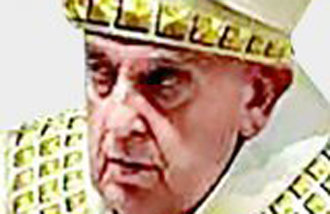[Editorial] Challenge for Pres. Lee and Nation: How to Advance Korea
[Editorial] Challenge for Pres. Lee and Nation: How to Advance Korea
Posted February. 25, 2008 03:53,
President Lee Myung-bak and his administration took office today. It is a significant coincidence that Lee starts his five-year term in this year, which marks the 60th anniversary of the birth of the Republic of Korea. Will the new administration achieve its mission of turning Korea into a truly advanced nation by building on the history of industrialization and democratization and shedding off the burden of the past? Rather than giving the typical well-wishing remarks, today we would like to make a proposal to the incoming president and the people on what to do for the next five years to advance our motherland. We would lag behind others if not move forward.
The first step to take is to identify the pressing issues our nation has and ask for cooperation from the public. The government should achieve a clear consensus on the roles and responsibilities of the president and the public, and prioritize them. Implementation can wait until the consensus is achieved. This is what the Roh Moo-hyun administration failed to do. When the public were concerned about their livelihood, his government devoted itself to ideological debates and historical disputes of the recent years. This was the major source of discord between the government and the people, two pillars of the national administration.
Let us take the Korea-U.S. free trade agreement as an example. An FTA with the biggest market in the world is not an option but a must for Korea to survive in the competitive global environment. It is his achievement to strike the agreement, but President Roh is leaving the office without success in having it ratified by the National Assembly. What will become of the agreement if it is not ratified for the next five years? Without continued pursuit of FTA deals, we will be short of the foundation for advancement. Korea should waist no time in concluding free trade deals with China, Japan, India and Latin American nations, not to mention the European Union. If the KORUS FTA is withheld at the National Assembly, Korea cannot join the ranks of the advanced nations. It is one of the priorities of the new president to persuade the public on the issue.
Another urgent issue is to keep the momentum of the six-nation talks to resolve the North Korean nuclear issue. We need to take steps of verification and disable the nuclear program in an irreversible way. If five years passes without this issue being addressed, South Korea will be taken hostage by the North Korean atomic bomb and hardly survive the politics of the four giant neighbors.
The issues of energy and climate change will dominate the 21st century. Newly industrialized nations such as China, India and Brazil as well as the traditional economic powers, including the U.S., Russia, the EU and Japan, are battling to secure energy. Oil is condemned for being the chief culprit of global warming, and will run out someday. The new administration should make it a national priority to find new, renewable energy sources by making investment and developing technologies.
Also critical is the issues of a small government and deregulation. The state-led growth strategy has fed the Japanese economy, but it doesnt work any more in the world of globalization, said Japan`s State Minister for Administrative Reform Yoshimi Watanabe in an interview with the Dong-A Ilbo. Reform in the public sector will give a boost to the creativity of the private sector and reduce intervention of the government. It is the sacred mission that Japan cannot avoid. When Japan is accelerating its administrative reform, the proposal for a small government of the new administration in Korea was left in tatters in the negotiation process with the opposition parties.
According to the National Statistical Office, the population of Korea will grow from 48.6 million this year to 49.1 million in 2013. Even though the pace of population growth is slowing, the demographical change poses a daunting challenge. The International Monetary Fund warned that the rapid aging trend in Korea could trigger a financial crisis. In the year 2050, 1.5 economically active Korean would have to support one elderly: the ratio was 7.7 to one in 2005. What measures should be taken to prevent the looming disaster and with what resources?
Another ominous forecast is that the Korean National Pension System will face depletion in 2040, faster than the earlier estimation. A few attempts were made, albeit without much success, to reform the national pension, but the deficit-riddled, tax-absorbing pension plan for civil servants remains untouched. Ironclad job security and a good-paying pension scheme are driving the most talented young minds to choose the public service sector as their career goal. President Lee Myung-bak should be ready to risk his popularity among public servants to reduce the number of government employees and their pension benefits.
A small government does not mean only the number of people in it. Less governmental interventions and deregulations make a government small. We need to bring the sense of bureaucrats back and change the public sector. The public will not be deceived by assumed competence or passion. The presidential transition committee bragged of its hard working with the No Holiday motto, but little has been achieved so far.
Reviving the growth engine amid the global financial slowdown and oil price hike is yet another critical mission for the new government. The economic growth rate of Korea for the past five years was lower than the global average, and its potential growth rate dropped to lower than five percent. Finding a new growth engine is a must to create decent jobs. The target economic growth rate for this year is lowered to six percent due to the adverse external factors, but this still will not be easy to achieve. The Lee administration pledged to pursue business-friendly policies to encourage corporate investment and new hiring, but the policies cannot succeed without support and creative contribution from the private sector.
The long-term competitiveness and growth of a nation is determined by the quality and quantity of human resources. Advanced nations are pursuing sweeping educational reforms ranging from elementary schools to universities. The reform of the college admission system is not enough for educational reform. Teachers and parents should share the national goal of education to nurture talents and build a great nation.
To become an advanced nation, the government and the public should join the hands to respect the cultural values. Cultural experiences and enrichment will greatly help to cure social divisions and discords.
If Lee and his government are still rejoicing in their election victory, a rude shock might surprise them in the April general elections. Lees approval ratings suffered a sharp drop recently due to the alleged speculation in real estate by his Cabinet appointees. Distrust starts with a minor issue. Unqualified candidates should be filtered through strict parliamentary hearings. The president, ministers and presidential secretaries should set the example of hard work and self-sacrifice so that the people can follow suit.
The people should do their part by breaking away from the old habit of unreasonable demands, group egoism, corruption and irregularities and by strengthening their bonds with the larger community. They should also respect the law. A report once said the GDP will increase by a full percentage point only if the people abide by the law.
All Koreans should take as much care of the national livelihood as they do of their own. Even a capable government cannot achieve anything without support and cooperation of its people. The Korean people and the government should open the door toward becoming a great nation. This is the historic mission given to the new president and his administration.
Headline News
- Korean president faces debate limitations unlike U.S. counterpart
- KEPCO's first quarter profits failed to meet market expectations
- Teenagers are left out of discussions about national pension
- 2 consultative bodies submit minutes regarding increasing number of medical students
- Woo Sang-hyuk's rivalry and friendship transcend borders







